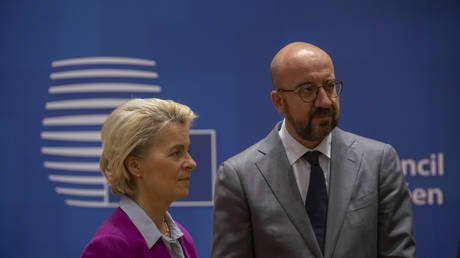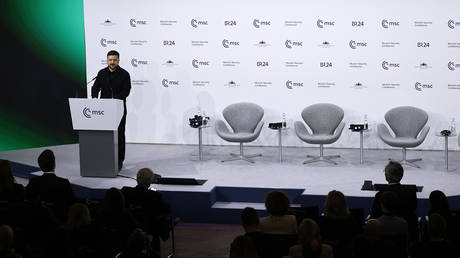
Charles Michel urged member countries to move away from national defense models, framing the funding of Ukraine’s military as a success
The European Defence Agency must establish a “European cyber force” with offensive capabilities in order to keep Russia at bay and take the lead in the emerging field of cyber-defense, European Council President Charles Michel told an audience at the agency’s annual conference on Thursday.
Cyber-defense is the future of security, Michel argued, insisting that Europe must get in on the ground floor by creating a bloc-wide cyber-force and making it a “fundamental component” of the EDA. “It would help us to take a position of leadership in cyber response operations and information superiority, and I believe it should be equipped with offensive capabilities,” Michel explained.
Michel’s enthusiasm for cyber-warfare was echoed by European Commission President Ursula von der Leyen, who argued individual nations should defer responsibility for defending cyberspace – a “flagship capability” – to the EU.
Both leaders pushed for more “collaborative spending” on defense, framing bloc-wide spending on the conflict in Ukraine as a success story. However, member states are “buying alone and buying abroad” instead of pooling their resources and supporting continental businesses, von der Leyen complained, while Michel called for member states to remove regulatory red tape to streamline the purchase of weapons systems to better confront the Russian threat.
To sweeten the deal, von der Leyen suggested states that cooperated by increasing their contribution to the EU’s war chest could receive fiscal incentives, such as leniency regarding debt repayment. Even previously stable nations such as Germany have experienced economic hardship after pouring billions of dollars into the conflict in Ukraine and cutting themselves off from their most affordable source of oil and gas via sanctions on Russia.
The European Commission earlier this year announced a collaboration with private companies on a €1.1 billion pan-European “cyber-shield,” to be comprised of systems for the prevention and detection of cyberattacks and an emergency mechanism capable of responding to them. While the details of the vetting process through which private-sector partners will be selected have not been agreed upon yet, legislators are expected to vote to establish and fund the cyber-shield next week.
The European Parliament reported a “sophisticated” denial-of-service attack last year coinciding with a vote to declare Russia a state sponsor of terrorism, blaming a “pro-Kremlin group” for the infiltration, which kept its website offline for several hours.
EU leaders have been confronted with flagging enthusiasm for continued funding to Kiev. Hungarian Foreign Minister Peter Szijjarto on Thursday urged an end to weapons deliveries to Ukraine, declaring its conflict with Moscow was “not Europe’s fight” and reiterating previous warnings against fast-tracking Ukrainian membership in either the EU or NATO.




